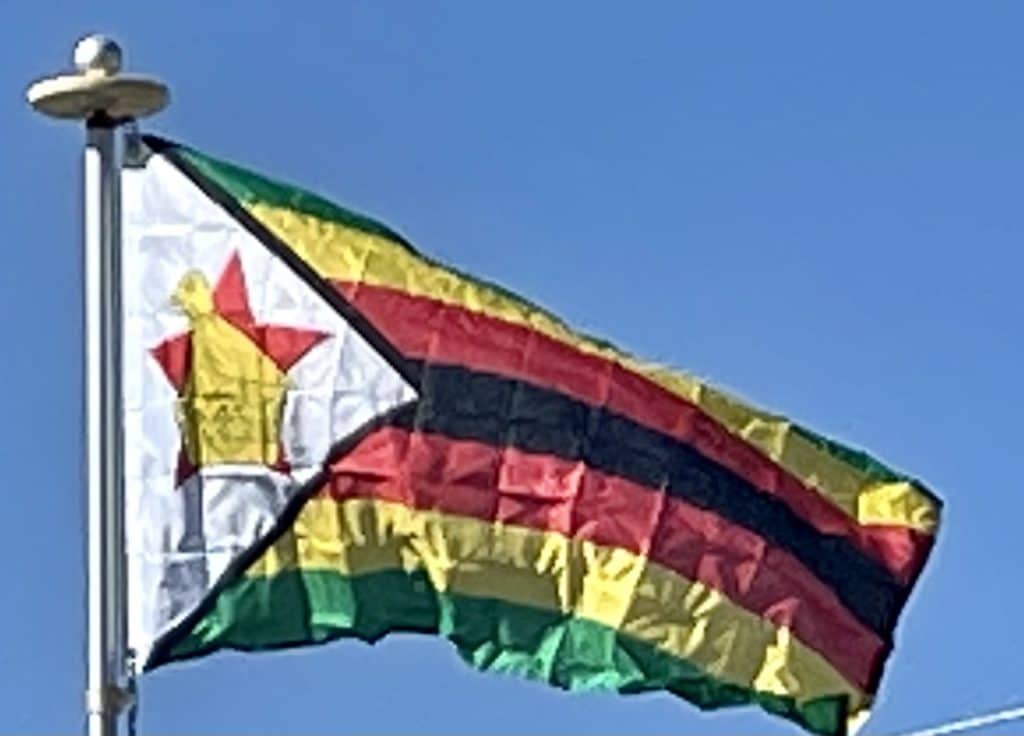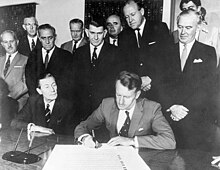
Zimbabwe
In March 1978, Smith reached an accord with three African leaders, led by Bishop Abel Muzorewa, who offered to leave the white population comfortably entrenched in exchange for the establishment of a biracial democracy. As a result of the Internal Settlement, elections were held in April 1979, concluding with the United African National Council (UANC) carrying a majority of parliamentary seats. On 1 June 1979, Muzorewa, the UANC head, became prime minister and the country’s name was changed to Zimbabwe Rhodesia. The Internal Settlement left control of the Rhodesian Security Forces, civil service, judiciary, and a third of parliament seats to whites. On 12 June, the United States Senate voted to lift economic pressure on the former Rhodesia.
Following the fifth Commonwealth Heads of Government Meeting (CHOGM), held in Lusaka, Zambia from 1 to 7 August in 1979, the British government invited Muzorewa, Mugabe, and Nkomo to participate in a constitutional conference at Lancaster House. The purpose of the conference was to discuss and reach an agreement on the terms of an independence constitution, and provide for elections supervised under British authority allowing Zimbabwe Rhodesia to proceed to legal independence.
With Lord Carrington, Secretary of State for Foreign and Commonwealth Affairs of the United Kingdom, in the chair, these discussions were mounted from 10 September to 15 December in 1979, producing a total of 47 plenary sessions. On 21 December 1979, delegations from every major interest represented reached the Lancaster House Agreement, effectively ending the guerrilla war.
On 11 December 1979, the Rhodesian House of Assembly voted 90 to nil to revert to British colonial status (the ‘aye’ votes included Ian Smith himself). The bill then passed the Senate and was assented to by the President. With the arrival of Lord Soames, the new Governor, just after 2 p.m. on 12 December 1979, Britain formally took control of Zimbabwe Rhodesia as the Colony of Southern Rhodesia, although on 13 December Soames declared that during his mandate the name Rhodesia and Zimbabwe Rhodesia would continue to be used. Britain lifted sanctions on 12 December, and the United Nations on 16 December, before calling on its member states to do likewise on 21 December. Thus Zambia, Mozambique, Tanzania, Angola and Botswana lifted sanctions on 22–23 December; Australia partly pre-empted this, lifting all but trade sanctions on 18 December, and trade sanctions on 21 December.
During the elections of February 1980, Robert Mugabe and the ZANU party secured a landslide victory. Prince Charles, as the representative of Britain, formally granted independence to the new nation of Zimbabwe at a ceremony in Harare in April 1980.
Independence era (1980–present):
Zimbabwe’s first president after its independence was Canaan Banana in what was originally a mainly ceremonial role as Head of State. Robert Mugabe, leader of the ZANU party, was the country’s first Prime Minister and Head of Government.
Opposition to what was perceived as a Shona takeover immediately erupted around Matabeleland. The Matabele unrest led to what has become known as Gukurahundi (Shona: “the early rain which washes away the chaff before the spring rains”). The Fifth Brigade, a North Korean-trained elite unit that reported directly to the Zimbabwean Prime Minister, entered Matabeleland and massacred thousands of civilians accused of supporting “dissidents”.

